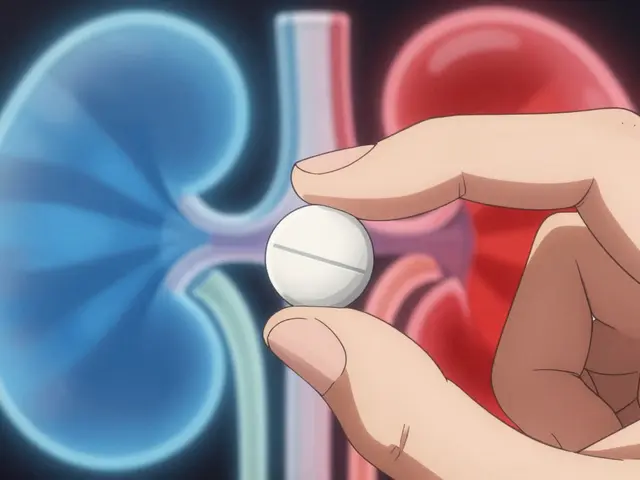Dry Mouth Relief: What Actually Helps Right Now
Can't stand the cotton-mouth feeling? Dry mouth (xerostomia) is annoying and can harm your teeth and throat if it sticks around. Below are simple, practical steps you can try today and solid options to discuss with your doctor if it keeps happening.
Quick fixes that help immediately
Drink water often. Small, frequent sips keep your mouth from drying out better than occasional big gulps. Carry a water bottle and take a sip when you wake, before meals, and when you talk a lot.
Chew sugar-free gum or suck on sugar-free lozenges. Look for xylitol — it stimulates saliva and lowers cavity risk. Avoid sugary candies; they make decay worse when saliva is low.
Use saliva substitutes. Over-the-counter sprays, gels, or rinses mimic saliva and give fast relief. Apply before bed if nights are the worst. They don’t cure the cause, but they make eating and speaking easier.
Humidify your bedroom. A cool-mist humidifier at night helps if you breathe through your mouth while sleeping. Dry winter air makes saliva feel thinner and more irritating.
Look at the cause and longer-term steps
Check your meds. Many common drugs cause dry mouth — antihistamines, some blood pressure pills, antidepressants, and pain meds. Don’t stop meds on your own. Talk to your prescriber about alternatives or dose adjustments.
Improve oral care. Brush twice daily with fluoride toothpaste, floss, and ask your dentist about extra fluoride gels or varnishes. Dry mouth raises your risk of cavities and gum problems, so regular dental checks matter more than ever.
Limit things that worsen dryness: alcohol, caffeine, salty foods, and tobacco. Alcohol-based mouthwashes can strip moisture; switch to an alcohol-free rinse.
If an underlying health problem causes dry mouth — like Sjögren’s syndrome, diabetes, or radiation to the head and neck — treat the condition and use targeted therapies. For some people, prescription drugs such as pilocarpine or cevimeline can boost saliva. These need a doctor’s prescription and monitoring for side effects.
Stay mindful of breathing. Mouth breathing dries saliva fast. If allergies or nasal congestion force you to breathe through your mouth, treat the congestion or try nasal strips at night to ease airflow.
When to see a pro: if dryness lasts more than two weeks, you have trouble swallowing, persistent sore throat, changes in taste, or a lot of new cavities, see your dentist or doctor. They can check for causes, adjust medications, or recommend prescription treatments.
Dry mouth is common and usually manageable. Start with hydration, sugar-free gum, and good dental care. If that’s not enough, your healthcare team has safe options to help restore comfort and protect your teeth.

The Benefits of Chewing Sugar-Free Gum for Dry Mouth Relief
I recently came across an interesting topic about the benefits of chewing sugar-free gum for dry mouth relief. It turns out that chewing sugar-free gum can help stimulate saliva production, which is essential for maintaining a healthy oral environment. This is especially helpful for those who suffer from dry mouth, as it can alleviate discomfort and even prevent bad breath. Additionally, sugar-free gum also helps to neutralize harmful acids and reduce the risk of cavities. So next time you're struggling with dry mouth, consider popping in a piece of sugar-free gum for a quick and easy solution!




